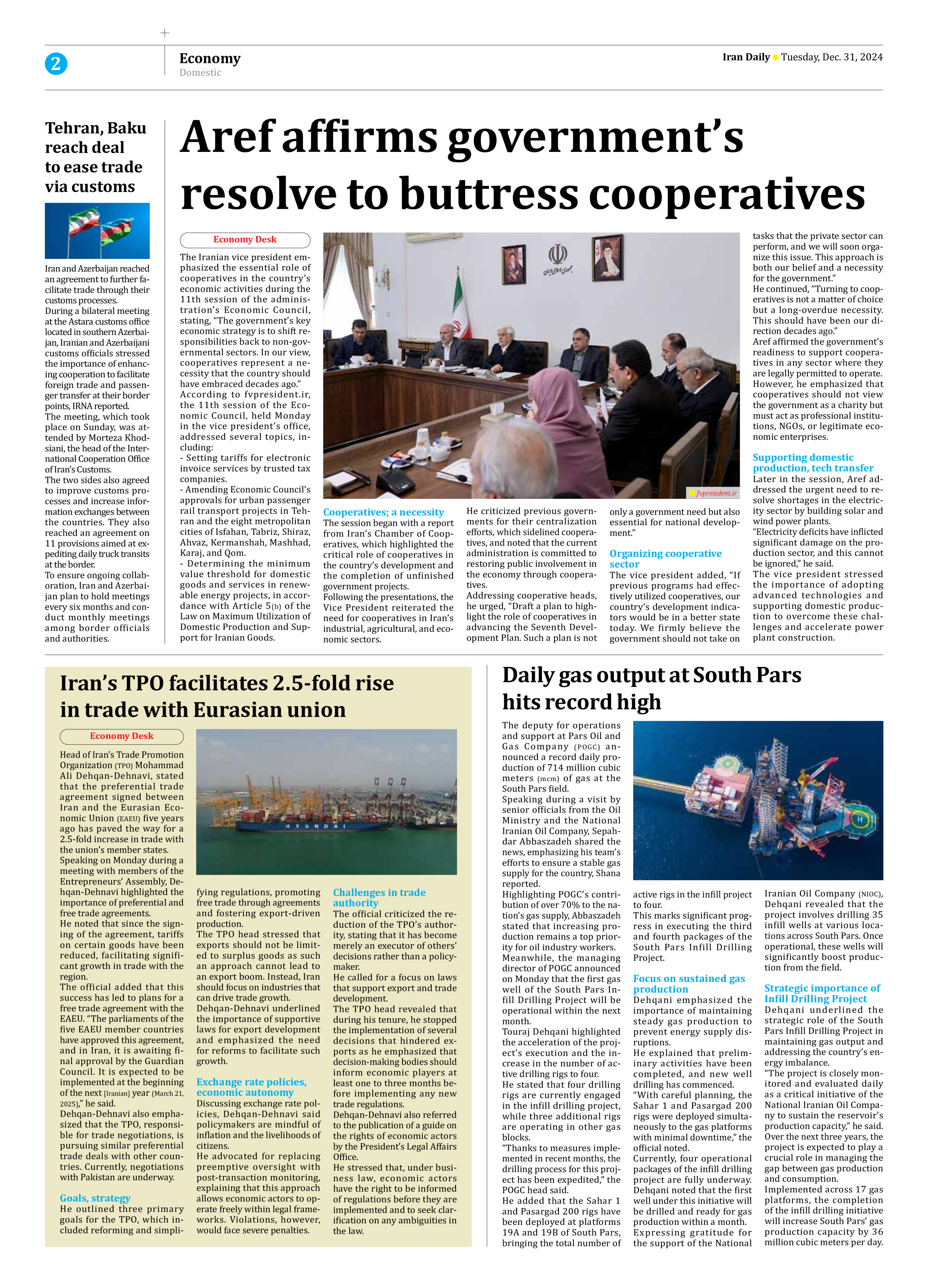
Iran’s TPO facilitates 2.5-fold rise in trade with Eurasian union
Head of Iran’s Trade Promotion Organization (TPO) Mohammad Ali Dehqan-Dehnavi, stated that the preferential trade agreement signed between Iran and the Eurasian Economic Union (EAEU) five years ago has paved the way for a 2.5-fold increase in trade with the union’s member states.
Speaking on Monday during a meeting with members of the Entrepreneurs’ Assembly, Dehqan-Dehnavi highlighted the importance of preferential and free trade agreements.
He noted that since the signing of the agreement, tariffs on certain goods have been reduced, facilitating significant growth in trade with the region.
The official added that this success has led to plans for a free trade agreement with the EAEU. “The parliaments of the five EAEU member countries have approved this agreement, and in Iran, it is awaiting final approval by the Guardian Council. It is expected to be implemented at the beginning of the next [Iranian] year (March 21, 2025),” he said.
Dehqan-Dehnavi also emphasized that the TPO, responsible for trade negotiations, is pursuing similar preferential trade deals with other countries. Currently, negotiations with Pakistan are underway.
Goals, strategy
He outlined three primary goals for the TPO, which included reforming and simplifying regulations, promoting free trade through agreements and fostering export-driven production.
The TPO head stressed that exports should not be limited to surplus goods as such an approach cannot lead to an export boom. Instead, Iran should focus on industries that can drive trade growth.
Dehqan-Dehnavi underlined the importance of supportive laws for export development and emphasized the need for reforms to facilitate such growth.
Exchange rate policies, economic autonomy
Discussing exchange rate policies, Dehqan-Dehnavi said policymakers are mindful of inflation and the livelihoods of citizens.
He advocated for replacing preemptive oversight with post-transaction monitoring, explaining that this approach allows economic actors to operate freely within legal frameworks. Violations, however, would face severe penalties.
Challenges in trade authority
The official criticized the reduction of the TPO’s authority, stating that it has become merely an executor of others’ decisions rather than a policymaker.
He called for a focus on laws that support export and trade development.
The TPO head revealed that during his tenure, he stopped the implementation of several decisions that hindered exports as he emphasized that decision-making bodies should inform economic players at least one to three months before implementing any new trade regulations.
Dehqan-Dehnavi also referred to the publication of a guide on the rights of economic actors by the President’s Legal Affairs Office.
He stressed that, under business law, economic actors have the right to be informed of regulations before they are implemented and to seek clarification on any ambiguities in the law.







